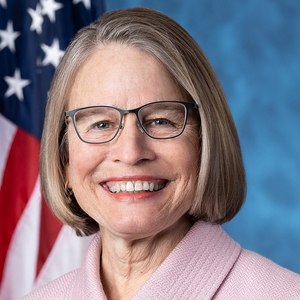House bill aims to create high-octane, low-carbon fuel standard

March 30, 2023
BY Erin Krueger
Rep. Mariannette Miller-Meeks, R-Iowa, and 19 cosponsors on March 30 reintroduced the Next Generation Fuels Act, a bill that aims to establish a high-octane, fuel standard. Companion legislation was introduced by Sen. Chuck Grassley, R-Iowa, on March 22. Previous versions of the bill were also introduced in 2020, 2021 and 2022.
The legislation would establish a minimum research octane number (RON) standard of 98 for gasoline, which is higher than the typical octane of 91. It also requires the added octane value to reduce carbon emissions by at least 40 percent compared to regular gasoline. Fuels containing 20 to 30 percent ethanol would meet these requirements. In addition, the bill would require automobile manufacturers to design and warrant their vehicles to allow these fuels beginning with model year (MY) 2026; includes a restriction on the aromatics content of gasoline; and ensures parity in the regulation of gasoline volatility (Reid vapor pressure).
Cosponsors of the House bill include Reps. Nikki Budzinski, D-Ill.; Darin LaHood, R-Ill.; Angie Craig, D-Minn.; Randy Feenstra, R-Iowa; Zach Nunn, R-Iowa; Ashley Hinson, R-Iowa; Don Bacon, R-Neb.; Dan Kildee, D-Mich.; Andre Carson, D-Ind.; James Comer, R-Ky.; Mike Bost, R-Ill.; Mike Lawler, R-N.Y.; Mike Flood, R-Neb.; Brad Finstad, R-Minn.; Mary Miller, R-Ill.; Eric Sorensen, D-Ill.; Elissa Slotkin, D-Mich.; Emanuel Cleaver II, D-Mo.; and Marcy Kaptur, D-Ohio.
Advertisement
Advertisement
The Next Generation Fuels Act is supported by the National Corn Growers Association, Renewable Fuels Association, American Coalition for Ethanol, National Farmers Union, American Farm Bureau Federation, John Deere, United Auto Workers, Iowa Corn Growers Association, Iowa Farm Bureau, and Growth Energy.
“We thank Reps. Miller-Meeks, Craig, LaHood and Budzinski for leading the charge and reintroducing the Next Generation Fuels Act in the House,” said Geoff Cooper, president and CEO of the RFA. “Americans will continue to rely on liquid fuels and internal combustion engines for decades to come, and this legislation will ensure drivers have access to more efficient high-octane, low-carbon, lower-cost fuels for their vehicles well into the future. We look forward to working with clean fuel supporters in both chambers of Congress to turn this bold vision into a reality.”
“We support this legislation because it would overcome a host of regulatory barriers currently standing in the way of expanding the use of ethanol, from E15 to high octane blends such as E25 or E30, and reinstate incentives for the production of more flexible fuel vehicles (FFVs),” said Brian Jennings, CEO of ACE. “We thanked these lawmakers in person this week during our Hill visits for recognizing the value of ethanol as an immediate solution to decarbonize the transportation sector and improve the efficiency of vehicles, as liquid fuels will continue to be used in the decades to come, despite the rise of electric vehicles.”
Advertisement
Advertisement
“Enactment of the clean fuel performance-based §45Z tax credit late last year in the Inflation Reduction Act enables ethanol and other clean fuel producers the opportunity to obtain a tax credit based on their unique carbon intensity score,” Jennings added. “Enactment of the Next Generation Fuels Act would complement that tax credit by helping lower pump prices while enabling greater engine efficiency and biofuel demand, and we were pleased to promote this legislation during our fly-in this week.”
“High-octane ethanol has the power to deliver the performance and savings consumers need, while driving down transportation emissions,” said Emily Skor, CEO of Grwoth Energy. “We applaud Representatives Mariannette Miller-Meeks (R-Iowa), Angie Craig (D-Minn.), Darin LaHood (R-Ill.), and Nikki Budzinksi (D-Ill.) for leading efforts to unleash the full potential offered by American biofuels. This bipartisan legislation represents a common-sense step toward lower prices at the pump, greater energy security, and cleaner air. We urge lawmakers to join forces with our House and Senate champions to quickly send the Next Generation Fuels Act to the president’s desk.”
A full copy of the bill is available on Miller-Meeks’ website.
Related Stories
The USDA has announced it will delay opening the first quarterly grant application window for FY 2026 REAP funding. The agency cited both an application backlog and the need to disincentivize solar projects as reasons for the delay.
Neste and DHL Express have strengthened their collaboration with the supply of 7,400 tons (9.5 million liters) of neat, i.e. unblended, Neste MY Sustainable Aviation Fuel to DHL Express at Singapore Changi Airport starting July 2025.
CoBank’s latest quarterly research report, released July 10, highlights current uncertainty around the implementation of three biofuel policies, RFS RVOs, small refinery exemptions (SREs) and the 45Z clean fuels production tax credit.
The U.S. Energy Information Administration maintained its forecast for 2025 and 2026 biodiesel, renewable diesel and sustainable aviation fuel (SAF) production in its latest Short-Term Energy Outlook, released July 8.
XCF Global Inc. on July 10 shared its strategic plan to invest close to $1 billion in developing a network of SAF production facilities, expanding its U.S. footprint, and advancing its international growth strategy.
Upcoming Events










